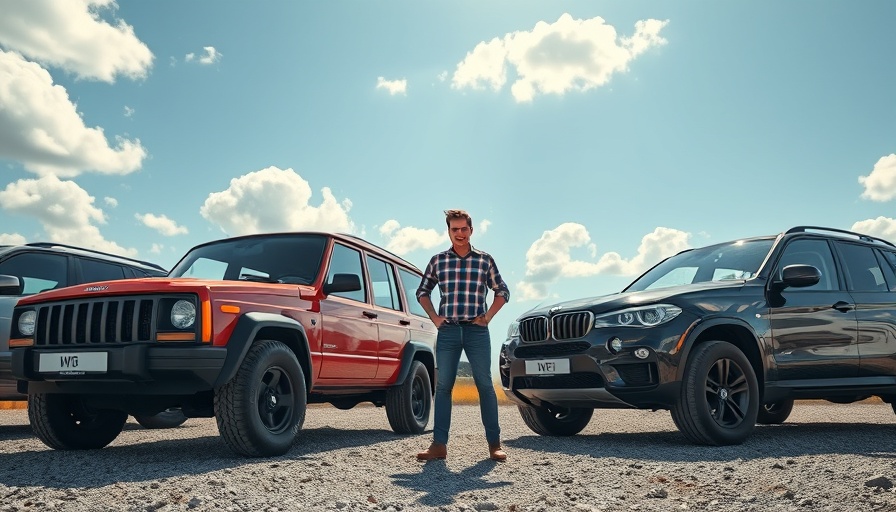
Rugged Legacy: The Evolution of the Land Cruiser
The recent debate about the Land Cruiser's lineage garners attention, igniting conversations around how much progress has truly been made over the decades. Toyota's Land Cruiser has been revered for its reliability and off-road prowess since its inception, blending functionality with a rugged aesthetic. Those captivated by its legacy recall the 80 series as a masterclass in off-road capabilities, boasting strengths that many believe the modern equivalent, the LC250, falls short of capturing.
In $6,500 vs $65,000 Land Cruiser, the discussion dives into the contrasting legacies of Toyota’s iconic vehicles, exploring key insights that sparked deeper analysis on our end.
Off-Road vs. On-Road: Suspension Showdown
A prime point of comparison between the old and new models lies in their suspension systems. The 80 series, built with a solid front axle, remains a fan favorite thanks to its unparalleled off-road performance. In contrast, the LC250's independent front suspension (IFS) is designed for superior on-road comfort, presenting a conundrum for enthusiasts who prioritize off-road adventuring. The charm of the solid front axle’s durability and effectiveness on rugged terrain has led many to favor it despite the smoother ride of today’s engineering, raising questions about the evolving demands of the contemporary consumer.
The Power Plant Dilemma: Comparing Engines
Under the hood, the nostalgic inline-six 1FZ engine of the 80 series draws attention for its simplicity and robust build, allowing for easier repairs in off-the-grid scenarios. Meanwhile, the LC250 houses a turbo hybrid engine that provides greater power but poses concerns regarding repairability with basic tools. Could this shift towards sophisticated powertrains dissuade die-hard fans of the rugged simplicity found in older models?
A Cultural Shift in Consumer Preferences
For those dedicated to adventure, the nuanced transition from utility to modern amenities can be disconcerting. The LC250 offers features that cater to a broader audience, including advanced safety systems and improved fuel efficiency. However, some argue that Toyota’s decisions reflect a misunderstanding of their loyal customer base, which craves a back-to-basics approach to fuel their adventurous spirits. Is the market truly signaling a need for plush environments over rugged reliability?
Unpacking the Price Tag: Worth the Investment?
The financial aspect cannot be overlooked in this discussion. With a starting price difference that favors the older model significantly, potential buyers must weigh what they consider essential in their investment. At $6,500 for an 80 series compared to $65,000 for the LC250, many buyers cannot help but question whether a price tag reflects value or simply the evolution of features that might not resonate with every consumer.
Innovation vs. Tradition: What Remains?
Ultimately, the choice between the 80 series and the LC250 boils down to personal preference. For diehard enthusiasts who prioritize sheer performance in off-road scenarios, the 80 series shines. For consumers seeking a well-rounded vehicle that can transition seamlessly from suburban streets to rugged trails, the LC250 offers a compelling, albeit premium, option. The question to consider for prospective buyers is: is modernization genuinely improving the experience, or is it merely a facade that distracts from the Land Cruiser's celebrated legacy?
Conclusion: The Future of the Land Cruiser
As we analyze the intricate balance between tradition and innovation, the legacy of the Land Cruiser will continue to carry weight. Whether you aspire to own a classic or invest in modern capabilities, understanding the past informs our choices for the future. The Land Cruiser symbolizes more than just an automobile; it embodies a lifestyle rooted in adventure and resilience. For firsthand insights into effective car buying strategies that fit your unique needs, consider resources that dive deeper into the shifting landscape of vehicle superiority.
 Add Row
Add Row  Add
Add 




 Add Row
Add Row  Add
Add 

Write A Comment